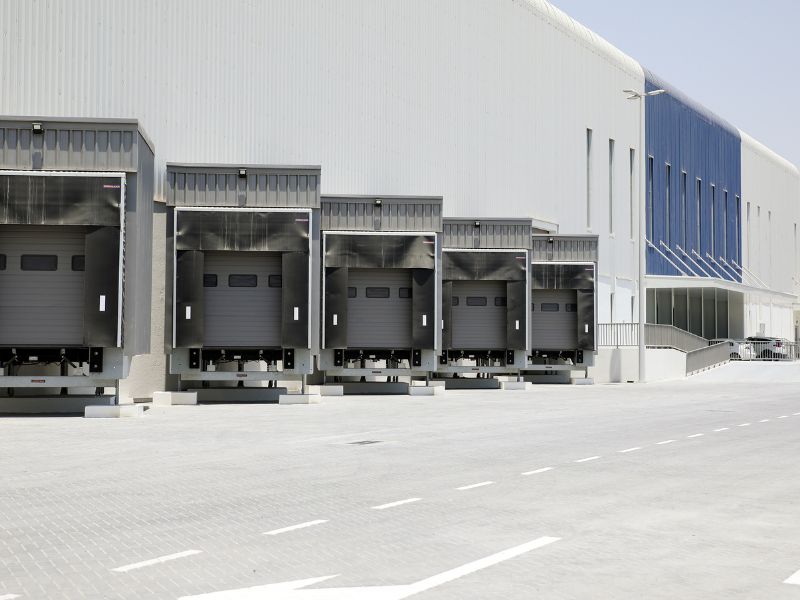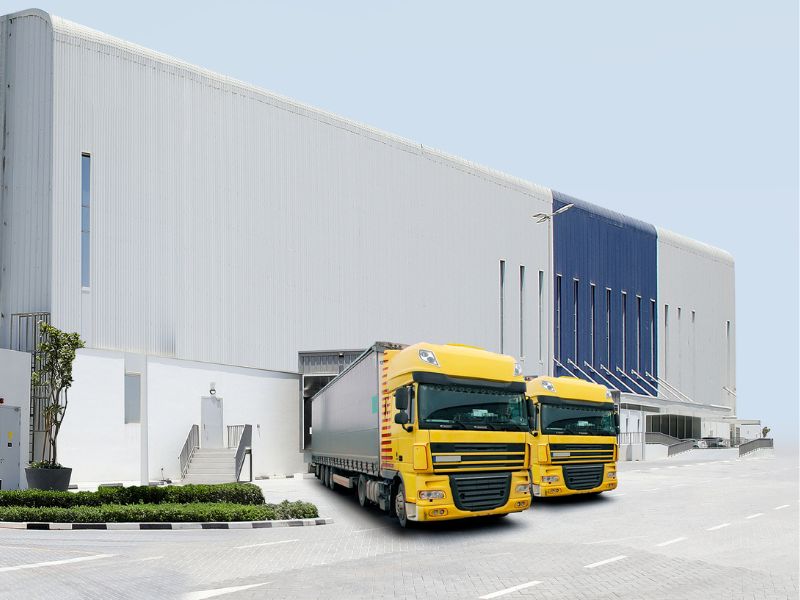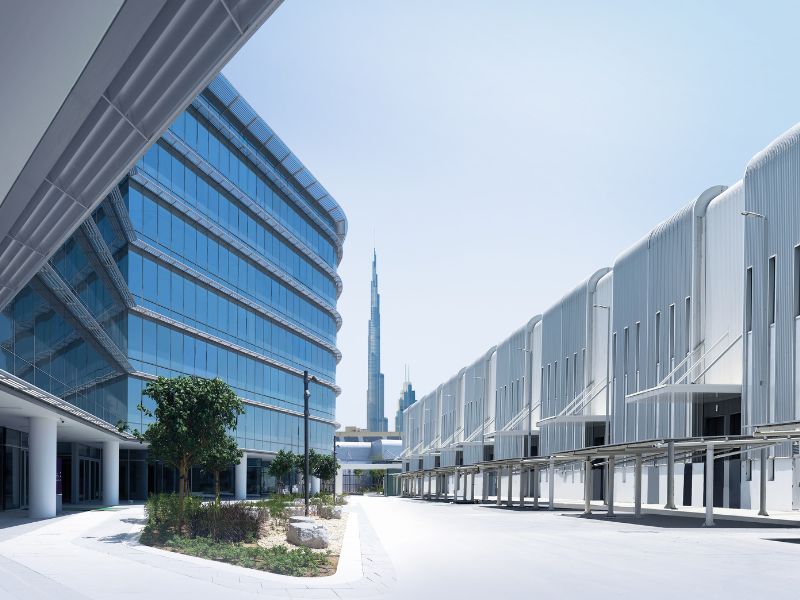Mitch Bittermann, Senior Vice President of Commercials at Dubai CommerCity, guides us through various offerings…
Dubai CommerCity is the first free zone of its kind in the region, and it offers facilities and services geared towards assisting businesses engaged in digital commerce. Local, regional, and international companies can access a first-of-its-kind premium digital and physical infrastructure through the free zone, which offers a one-stop shop for solutions. Dubai Commercial City also provides strategy consulting, advice on local laws, and end-to-end logistics solutions, including warehousing and last-mile delivery, in addition to full business setup and customs support. Access to complete digital commerce platform solutions, digital marketing services, and other support services like advisory, photo studios, call centres, and more are also available to different businesses.
Adopting Digital Transformation
Dubai Commercial City has made remarkable progress in paving its way towards a comprehensive digital shift in light of the world’s accelerating digital transformation. Last year, the free zone unveiled its new strategic identity, focusing on the ‘technology first’ transformation of its operations and services to digital commerce. By doing this, the free zone has successfully enabled the most aspirational brands in the world to transform human experiences across the digital commerce landscape. “Thus, we are contributing to maximising returns and revolutionising business models to drive genuine loyalty and growth,” shared Mitch Bittermann, Senior Vice President of Commercials at Dubai CommerCity.

“Moreover, we are continuously working to improve the quality of the free zone’s business environment and digital infrastructure and toward embracing digital innovation through different initiatives and solutions that support the transformation of the digital economy.”
To assist the free zone in streamlining its digital operations, Dubai CommerCity is also eager to increase the scope of its partnership network. To launch the free zone’s blockchain node, they worked with Dubai Customs. This significantly reduces implementation costs for businesses and enables them to take advantage of operational efficiencies during the import and export. Additionally, to advance the free zone’s integrated infrastructure and digital framework, the Telecommunications and Digital Government Regulatory Authority (TDRA), Dubai Digital Authority, and Emirates NBD partnered with the free zone.
Celebrating the ‘Year of Sustainability’
Dubai CommerCity is fully committed to supporting the UAE’s goals of reducing its carbon footprint by 25 per cent by 2023 by adopting non-traditional methods that align with global standards for promoting a sustainable environment and a green economy.
“As such, we lower our electricity consumption by using solar energy and reduce water wastage by 40 per cent through the treatment of polluted water and the collection and reuse of rainwater, all in addition to the usage of rooftop photovoltaic solar panels to generate clean energy,” added Mitch.
Their methods include using recycled materials and environmentally friendly building materials and implementing international environmental standards for constructing light industrial buildings and units. They are eager to make it easier for electric vehicle adoption in the free zone. Mitch said, “By providing reliable and efficient EV charging infrastructure, we empower businesses and individuals to embrace greener mobility options, contributing to reduced carbon emissions and a cleaner environment.”

On A Constant Ladder Of Growth
They are committed to continuously developing their infrastructure and facilities to ensure that clients and partners enjoy state-of-the-art technology and the most significant advantage on the market. “This year, we decided to redesign our planned warehouse infrastructure to ensure it aligns with the requirements of a B2C-friendly environment. This has allowed us to optimize order fulfilment processes, implement advanced tracking and delivery solutions, and establish seamless last-mile delivery capabilities,” Mitch continued. While maintaining efficiency and competitiveness in the dynamic logistics landscape, they seek to meet individual clients’ and consumers’ expanding needs by modifying their warehouse infrastructure. This improved their ability to meet the expanding B2C (business-to-consumer) needs.
Post COVID-19
The already booming digital commerce industry grew even faster due to the COVID-19 pandemic. E-commerce in MENA increased by 52 per cent in a single year, reaching a gross merchandise value (GMV) of $22 billion in 2020. The pre-lockdown estimates for the online retail market in the UAE and Saudi Arabia combined was $7.5 billion. It increased to $11 billion by the end of March 2020. The Middle East’s e-commerce market is experiencing significant growth and enormous potential. It is projected to grow to a market size of $50 billion by 2025.
Companies that put off digitization quickly shifted to interacting with customers online. At the same time, this altered consumer preferences and logistics infrastructure conventions, fundamentally altering how economies function. This technological change had the potential to create ecosystems that drew small, regional businesses into the value chain.
On the other hand, COVID-19 also demonstrated the importance of the physical store experience, with many retailers experiencing significant revenue losses from the temporary closure of stores. Mitch highlighted, “This confirmed the need for diversity in the digital e-commerce platforms, with a blend of the physical store experience. A seamless customer experience is not about being everywhere for everything but using the right blended channels and top-notch technologies for our user satisfaction.”

Hand-In-Hand With The Government
The Dubai government has been eager to support the free zone model because it has a track record of success and contributes significantly to the nation’s economic growth in several ways, including by luring in foreign direct investment, fostering international trade, creating supply chains, and providing other direct and indirect advantages.
Dubai has taken the lead in recent years in creating an environment that encourages innovation, diversification, and competition so that businesses can flourish. The Emirate has also served as a hub for creating innovative technological solutions that have improved regional and international business productivity and efficiency. Dubai has also urged young people to play a significant part in fostering innovation through fresh perspectives and ground-breaking solutions.
Next Few Years
The e-commerce market is still expanding astronomically quickly. The fourth industrial revolution, or ‘Cyber Physical,’ has brought ground-breaking technological innovations that are upending the e-commerce industry. In the next five years, some of the most predictable e-commerce trends will take off, including social commerce, augmented reality and virtual reality, voice shopping, drone delivery, and micro-fulfillment centres inside of malls. “The future is inspiring for e-commerce in the wider region. We are confident that Dubai CommerCity can offer the best solutions, services, and platforms to pioneer advancement in the e-commerce ecosystem,” concluded Mitch.

